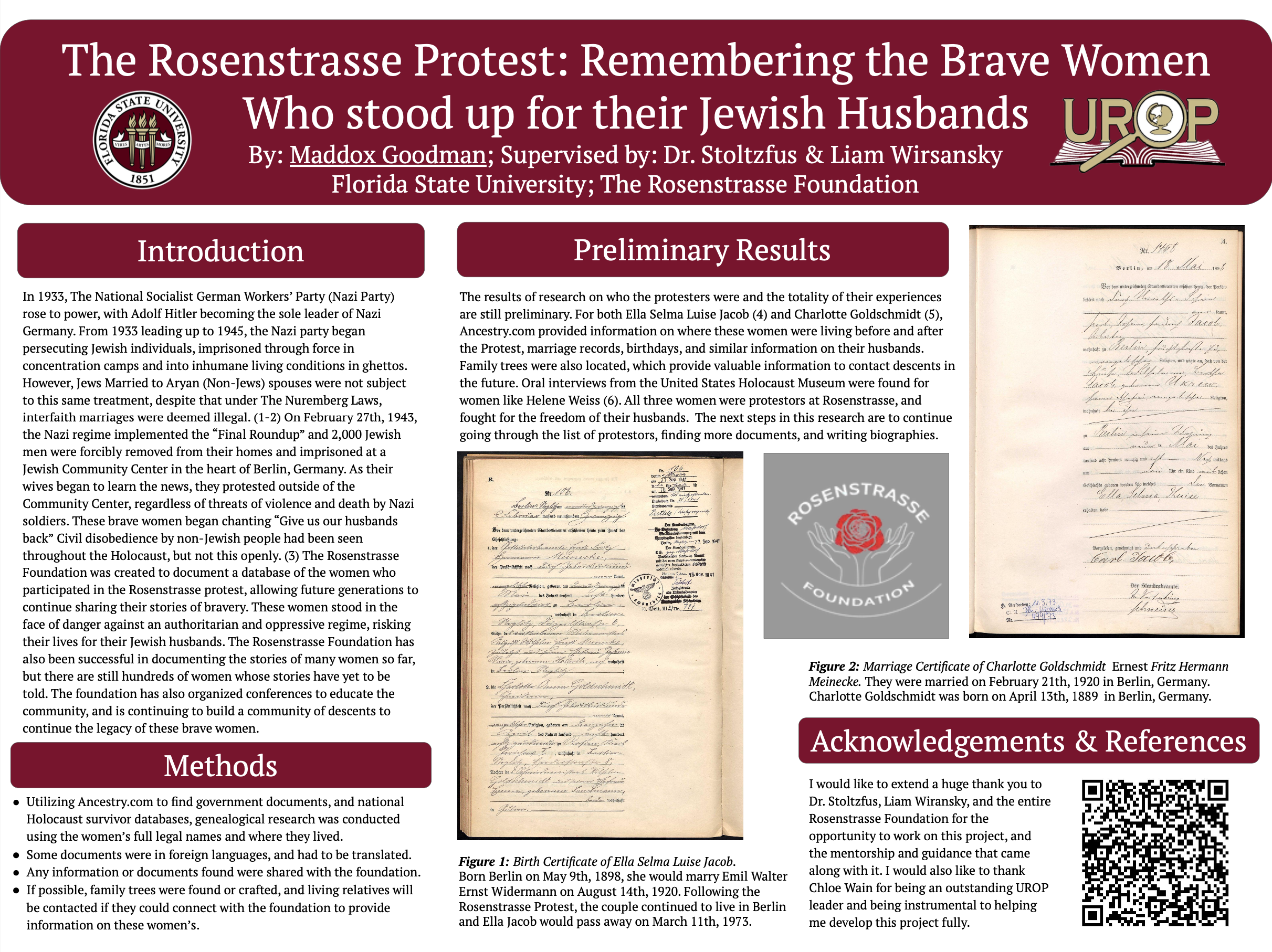Research Symposium
24th annual Undergraduate Research Symposium, April 3, 2024
Maddox Goodman Poster Session 2: 10:45 am - 11:45 am/386
BIO
Maddox Goodman is a freshman majoring in English: Editing, Writing, and Media, and Philosophy and is from Hollywood, Florida. Following his time at Florida State, Maddox plans on attending law school.
Born and raised in South Florida as Jewish, Maddox was drawn to this project as he felt a personal connection to it. Working with the Rosenstrasse Foundation, Maddox conducted research on the women who bravely protested for their husbands during the Rosenstrasse Protests.
Maddox also has experience as the Head of Alumni Relations at his fraternity, Sigma Alpha Epsilon, and will have an internship this summer at Cole, Scott, and Kissane, a law firm in South Florida.
The Rosenstrasse Protest: Remembering the Brave Women Who stood up for their Jewish Husbands
Authors: Maddox Goodman, Dr. Nathan StoltzfusStudent Major: English: Editing, Writing, and Media and Philosophy
Mentor: Dr. Nathan Stoltzfus
Mentor's Department: History Mentor's College: College of Arts and Sciences Co-Presenters:
Abstract
From 1933 to 1945, the Nazi Regime ruled Germany, and eventually conquered various other territories in Eastern Europe. On September 15th, 1935, the Nuremberg Laws were instituted throughout Nazi Germany, and amongst many other things, banned Interfaith marriage. Interfaith marriage involved Jews marrying Aryan (Non-Jews) spouses. Noncompliance of these interfaith couples created social instability, which disturbed propaganda for the Nazi regime. This forced them to defer the fate of Jews in interfaith marriages. As the Holocaust progressed, Nazis’ began arresting Jews into Ghettos and Concentration Camps. On February 27th 1943, the Nazi regime implemented the “Final Roundup” which arrested Jews in interfaith marriages. The oppressors arrested 2,000 Jewish men in interfaith marriages, and took them to Rosenstrasse 2–4, a Jewish community center that the Nazis’ used to hold the Jewish men. The next day, the wives of these men gathered outside of Rosenstrasse, and chanted “Give us our husbands back”. Despite threats of death, these women bravely stood in honor of their husbands and continued to demand freedom. The goal of this research in collaboration with The Rosenstrasse Foundation is to remember these courageous women who stood by their Jewish husbands. By cross referencing a database of names provided by the Rosenstrasse Foundation, along with genealogical records, the research seeks to use qualitative analysis to recount, remember, and memorialize the stories of these women. The research aims to ensure their stories are told, passed down for many generations, and for an event like the Holocaust to never happen again.
Keywords: Protest, Judaism, Religion, Women, Holocaust

